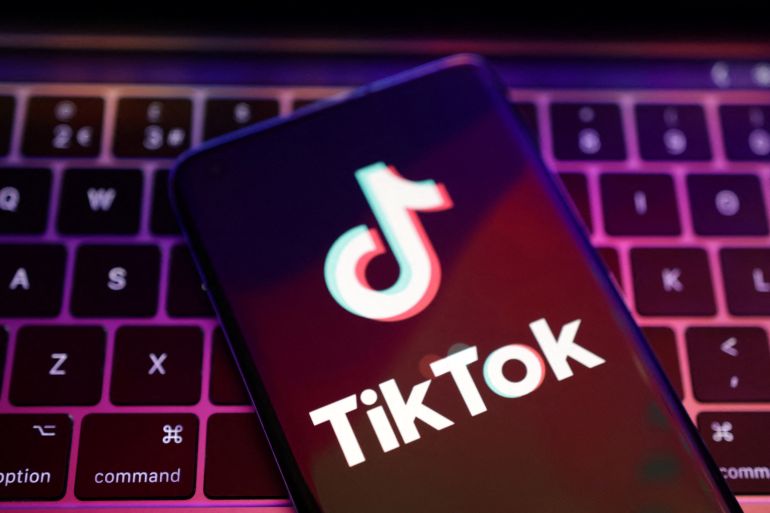White House backs bill to allow ban on Chinese-owned TikTok
White House national security adviser Jake Sullivan claims bill addresses ‘technology-based threats’ to Americans.

The Biden administration has backed a bipartisan bill that would give Washington the power to ban the Chinese-owned video app TikTok in the United States.
The bill, introduced by a dozen Republicans and Democrats in the Senate, would allow US President Joe Biden to ban technologies deemed by the US Commerce Department to pose an “undue or unacceptable risk” to national security.
Keep reading
list of 4 itemsNigeria election triggers deluge of ‘fake news’ on social media
Turkey victims buried under rubble plead for help on social media
Social media restricted in Ethiopia as church rift turns violent
The move marks a serious escalation in efforts to restrict TikTok, one of the world’s most popular social media platforms, following bans on the use of the app on government devices by the Biden administration and more than two dozen state governments.
US government and law enforcement officials have claimed that TikTok, owned by Chinese company ByteDance, could be used to spy on Americans, syphon off sensitive personal data, and manipulate public opinion.
White House national security adviser Jake Sullivan said the so-called RESTRICT Act, which would also apply to technology from other US adversaries such as Russia, North Korea and Iran, would address “technology-based threats to the security and safety of Americans”.
“This will help us address the threats we face today, and also prevent such risks from arising in the future,” Sullivan said in a statement.
“We look forward to continue working with both Democrats and Republicans on this bill, and urge Congress to act quickly to send it to the President’s desk.”
Democratic Senator Mark Warner, who introduced the legislation alongside cosponsors including Democrat Kirsten Gillibrand and Republicans Susan Collins and Mitt Romney, said the government should do more to explain the alleged risks of TikTok and “show its cards in terms of how this is a threat”.
“Today, the threat that everyone is talking about is TikTok, and how it could enable surveillance by the Chinese Communist Party, or facilitate the spread of malign influence campaigns in the US,” Warner said in a statement.
TikTok expressed disappointment over the bill, with spokesperson Brooke Oberwetter saying in a statement that banning the app would be effectively banning “the export of American culture and values to the billion-plus people who use our service worldwide.”
TikTok, which is used by more than 100 million Americans, has repeatedly insisted it has not and would not share personal data with the Chinese government and has been engaged in months-long negotiations with the Committee on Foreign Investment in the United States on ways to address national security concerns.
Some legal experts have argued a ban would violate free speech rights guaranteed under the First Amendment of the US Constitution, with the American Civil Liberties Union last month expressing concern over any move to restrict Americans’ right to “exchange our thoughts, ideas, and opinions with people around the country and around the world”.
In January, Al Jazeera revealed that cybersecurity officials in the state of Connecticut opted not to ban TikTok on government devices after receiving advice from the FBI that bans on the app elsewhere had been based on “news reports and other open source information about China in general, not specific to Tik Tok”.